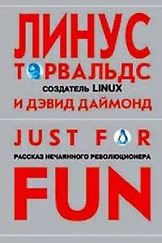And he wanted me to share in the experience. He also was trying to get me interested in math.
So I would sit on his lap and he would have me type in his programs, which he had carefully written out on paper because he wasn't comfortable with computers. I don't know how many other preteen boys sat in their grandfather's room, being taught how to simplify arithmetic expressions and type them correctly into a computer, but I remember doing that. I don't remember what the calculations were all about, and I don't think I had a single clue about what I really did when I did it, but I was there, helping him. It probably took us much longer than it would have taken him alone, but who knows? I grew comfortable with the keyboard, something my grandfather never did. I would do this after school, or whenever my mother dropped me off at my grandparents' apartment.
And I started reading the manuals for the computer, typing in the example programs. There were examples of simple games that you could program yourself. If you did it right you wound up with a guy that walked across the screen, in bad graphics, and then you could change it and make the guy walk across the screen in different colors. You could just do that.
It's the greatest feeling.
I started writing my own. The first program I wrote was the first program everybody else starts out with:
10 PRINT "HELLO"
20 GOTO 10
This does exactly what you expect it to do. It prints out HELLO on the screen. Forever. Or at least until you kill it out of boredom.
But it's the first step. Some people stop there. To them, it's a stupid exercise because why would you want to print out HELLO a million times? But it was invariably the first example in the manuals that came with those early home computers.
And the magic thing is that you can change it. My sister tells me that I made a radical second version of this program that didn't just write out HELLO, but instead wrote SARA IS THE BEST on the screen, over and over again. Ordinarily I wasn't such a loving older brother. Apparently the gesture made a big impression on her.
I don't remember doing it. As soon as I wrote a program I would forget about it and move on to the next one.
Let me tell you about Finland. Sometime in October the skies turn an unpleasant shade of gray, and it always looks as if it will either rain or snow. You wake up every day to this gloominess of anticipation. The rain will be chilly and it will rinse away any evidence of summer. When the snow comes, it has that magical quality of making everything bright and painting the place with a veneer of optimism. The trouble is, the optimism lasts about three days but the snow remains for month after bone-numbingly cold month.
By January you sort of wander around in a shadowy daze, if you choose to go outside. It's a season of moist, bulky clothes and slipping on the ice hockey rink they created by hosing down the grammar school field you traverse as a short-cut to the bus. On Helsinki streets it means dodging the occasional tottering matron who was probably somebody's gracious grandmother back in September but by 11 A.M. on a Tuesday in January is weaving on the sidewalks from her vodka breakfast. Who can blame her? It will be dark again in a few hours, and there isn't a lot to do. But there was an indoor sport that got me through the winter: programming.
Morfar (the Swedish word for "Mother's Father") would be there much of the time, but not all the time. He doesn't mind if you sit in his room when he's away. You beg up the money for your first computer book. Everything is in English and it is necessary to decode the language. It's difficult to understand technical literature in a language you don't really know that well. You use your allowance to buy computer magazines. One of them contains a program for Morse code. The odd thing about this particular program is that it's not written in the BASIC language. Instead, it's written as a list of numbers that could be translated by hand to machine language -- the zeros and ones that the computer reads.
That's how you discover that the computer doesn't really speak BASIC. Instead it operates according to a much more simple language. Helsinki kids are playing hockey and skiing with their parents in the woods. You're learning how a computer actually works. Unaware that programs exist to translate human-readable numbers into the zeros and ones that a computer understands, you just start writing programs in number form and do the conversions by hand. This is programming in machine language, and by doing it you start to do things you wouldn't have thought possible before. You are able to push what the computer can do. You control every single small detail. You start to think about how you can do things slightly faster in a smaller space. Since there's no abstraction layer between you and the computer, you get fairly close. This is what it's like to be intimate with a machine.
You're twelve, thirteen, fourteen, whatever. Other kids are out playing soccer. Your grandfather's computer is more interesting. His machine is its own world, where logic rules. There are maybe three people in class with computers and only one of them uses it for the same reasons. You hold weekly meetings. It's the only social activity on the calendar, except for the occasional computer sleepover.
And you don't mind. This is fun.
This is after the divorce. Dad lives in another part of Helsinki. He thinks his kid should have more than one interest, so he signs you up for basketball, his favorite sport. This is a disaster. You're the runt of the team. After a season and a half, you use all sorts of nasty language to tell him you're quitting, that basketball is his sport, not yours. Your new half-brother, Leo, will be more athletic. Then, too, he will eventually become Lutheran, like 90 percent of the Finnish population. That's when Dad, the staunch agnostic, realized he might be a failure as a parent -- something he suspected years earlier, when Sara joined the Catholic church.
The grandfather with the computer isn't really a jolly sort. He's balding, slightly overweight. He literally is something of an absent-minded professor and kind of hard to approach. He's just not an extrovert. Picture a mathematician who would stare out into space and not say anything while he was thinking about something. You could never tell what he was thinking about. Complexity analysis? Mrs. Sammalkorpi down the hall? I'm the same way -- famous for zoning out. When I'm sitting in front of the computer, I get really upset and irritable if somebody disturbs me. Tove could elaborate on this point.
My most vivid memories of Morfar take place not at his computer but at his little red cottage. In Helsinki it used to be common for people to keep a small summer place consisting of maybe a single thirty-foot by thirty-foot room. The little houses are on a tiny plot of land, maybe 150 square feet, and people go there to tinker in their gardens. They typically have an apartment in the city and then this little place to grow potatoes or tend a few apple trees or cultivate roses. It's usually older people because younger ones are busy working. These people get ridiculously competitive about whatever it is they are growing. That's where Morfar planted my apple tree, a small sapling. Maybe it's still there, unless it became so abundant that an envious neighbor snuck onto his property during the brief summer darkness and chopped it down.
Four years after introducing me to computers, Morfar develops a blood clot in his brain and becomes paralyzed on one side. It's a shock to everyone. He's in the hospital for about a year and he's the closest family you have, but it doesn't affect you that much. Maybe it's defensive or maybe it's just because you're so insensitive when you're young. He is absolutely not the same person anymore and you don't like going to see him. You go maybe every two weeks. Your mother goes more often. So does your sister, who early on assumed the role of the family social worker.
Читать дальше












